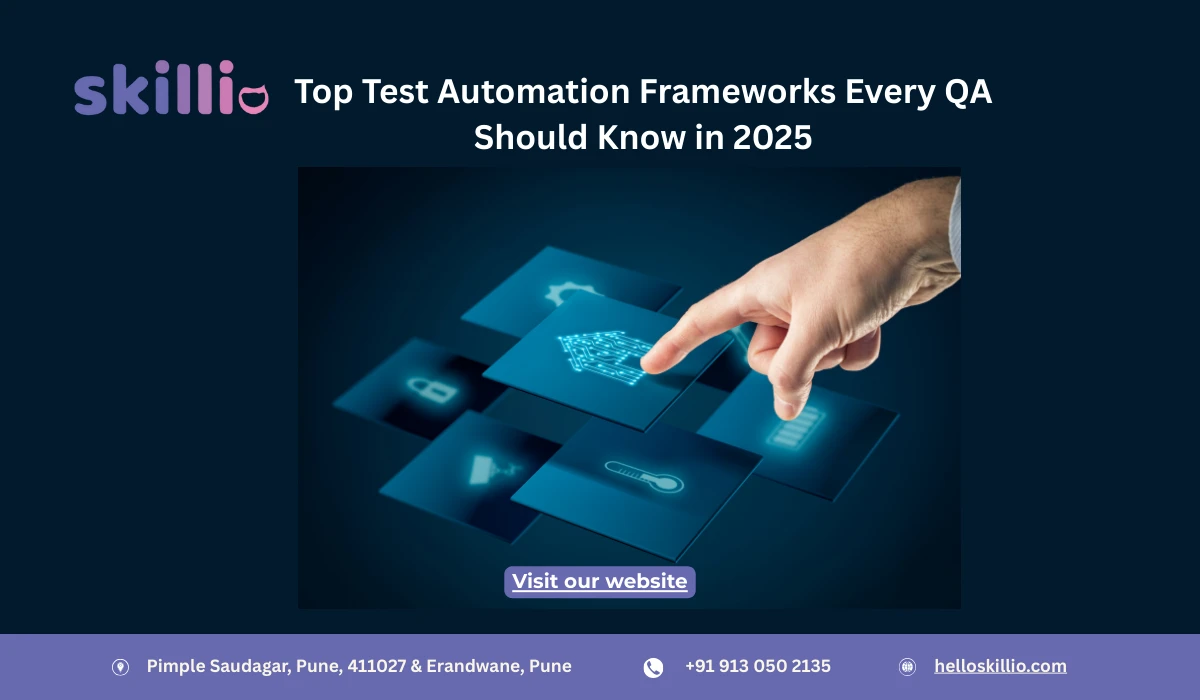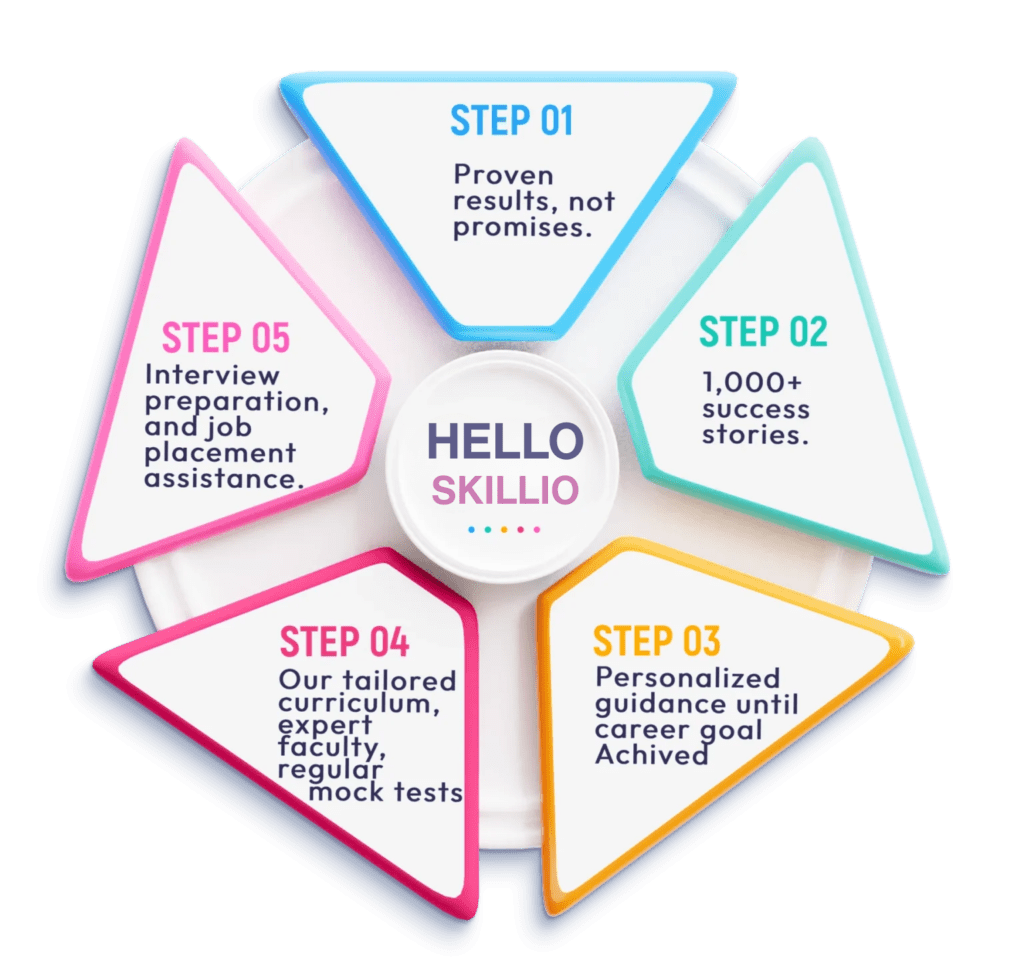The IT industry is evolving faster than ever, and software quality has become a top priority for businesses worldwide. As agile and DevOps practices dominate modern development, test automation frameworks play a critical role in ensuring speed, accuracy, and reliability. For QA professionals, mastering these frameworks is no longer optional—it’s essential. Enrolling in Automation Testing Classes in Pune can help you gain hands-on expertise with the tools that will shape the future of testing in 2025.
Top Test Automation Frameworks Every QA Should Know in 2025.
1. Selenium Framework
Selenium has been the industry leader in automation for over a decade. In 2025, it continues to be a top choice for web application testing.
Why it’s important:
- Supports multiple languages like Java, Python, C#, and JavaScript.
- Works across different browsers and operating systems.
- Integrates easily with tools like TestNG, JUnit, and Maven.
If you want to start your career in QA automation, learning Selenium is still one of the best decisions.
2. Cypress
Cypress has gained huge popularity for front-end and UI automation testing. It’s designed for modern JavaScript applications, especially React, Angular, and Vue.
Key features:
- Real-time reloading and debugging.
- Works directly in the browser for faster results.
- Great for developers and testers working together in agile teams.
Many IT companies now list Cypress as a must-have skill in job descriptions for QA roles.
3. Appium
With mobile app usage increasing globally, Appium has emerged as a leader in mobile automation frameworks.
Why QA should learn Appium:
- Automates both Android and iOS applications.
- Open-source and supports multiple programming languages.
- Compatible with native, hybrid, and web mobile apps.
If you are targeting jobs in mobile app testing, Appium is essential.
4. Robot Framework
Robot Framework is keyword-driven and ideal for testers with minimal coding experience.
Highlights:
- Easy syntax and reusable test cases.
- Supports web, mobile, and API testing.
- Works well with libraries like Selenium and Appium.
This framework is especially useful for beginners in automation testing.
5. JUnit and TestNG
Though these are testing libraries, they form the backbone of many automation frameworks.
Why they matter:
- Provide annotations, reporting, and execution control.
- Integrated seamlessly with Selenium.
- Help organize test cases and improve maintainability.
Any automation engineer working in Java-based projects must be comfortable with JUnit or TestNG.
6. Playwright
Playwright, developed by Microsoft, is quickly becoming a competitor to Selenium and Cypress.
Reasons to learn Playwright in 2025:
- Cross-browser testing with Chrome, Firefox, and WebKit.
- Supports multiple languages (JavaScript, Python, Java, C#).
- Fast execution and built-in parallelization.
Its ability to handle modern web apps makes it a rising star in test automation.
7. Katalon Studio
Katalon is an all-in-one testing platform that supports web, mobile, API, and desktop app testing.
Why Katalon is valuable:
- Easy for beginners but powerful for advanced testers.
- Rich reporting features.
- Cloud-based test execution and analytics.
Many mid-sized companies are adopting Katalon for its simplicity and efficiency.
8. Cucumber (BDD Framework)
Behavior Driven Development (BDD) is highly adopted in agile teams, and Cucumber is the go-to tool.
Benefits:
- Uses Gherkin syntax, making test cases readable by non-technical stakeholders.
- Bridges the gap between developers, testers, and business analysts.
- Integrates well with Selenium and other frameworks.
If you’re working in teams that emphasize collaboration, Cucumber is a must-learn.
9. TestCafe
TestCafe is another JavaScript-based framework that has gained attention for its simplicity.
Why it’s popular:
- Doesn’t require WebDriver.
- Easy setup and quick execution.
- Works well with CI/CD pipelines.
A good choice for teams working heavily with Node.js projects.
How to Choose the Right Automation Framework
With so many frameworks available, it’s natural to feel overwhelmed. The right choice depends on factors like:
- Application type (web, mobile, or both)
- Programming languages used in the project
- Team expertise
- CI/CD pipeline integration needs
A strong foundation through Automation Testing Classes in Pune can help you understand these frameworks deeply and decide which one fits your career goals.
Career Scope for Automation Testing in 2025
The future of QA is heavily automation-driven. Companies are constantly on the lookout for professionals who can design, implement, and manage automation frameworks.
By learning frameworks like Selenium, Cypress, and Appium, you open doors to high-paying QA roles, leadership positions, and long-term career growth.
With the right training, such as joining Software Testing Classes in Pune, you’ll gain practical exposure and hands-on experience that employers value.
Final Thoughts
In 2025, automation testing is no longer optional—it’s a necessity. Every QA professional must master the top test automation frameworks to stay relevant in the IT industry. From Selenium and Appium to Cypress and Playwright, these tools not only improve efficiency but also make you a more valuable asset to any organization.
If you’re planning to upskill and build a future-proof career, enrolling in Automation Testing Classes in Pune or Software Testing Classes in Pune can give you the right foundation. The combination of theoretical knowledge and hands-on practice ensures that you are job-ready for the QA roles of tomorrow.
Read Here: The Future of Test Automation: Trends and Predictions for 2025







